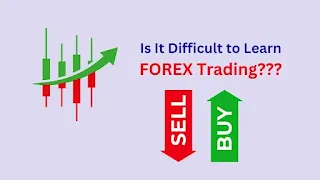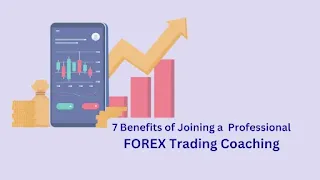The Secret Shield of Forex Trading: Keeping Your Money Safe
Imagine you have a small piggy bank. You have been saving your pocket money for months to buy a cool new video game. You finally have enough money! Now, imagine you decide to use that money to try and grow it even more by playing a game where the amount you have can go up or down very quickly. That game is somewhat similar to Forex trading.
Forex trading is like exchanging money from one country to another. For example, if you have money in Indian Rupees and you think the value of American Dollars will go up compared to Rupees, you can exchange your Rupees for Dollars. If you were right, and the Dollar becomes stronger, you can exchange your Dollars back to Rupees and have more money than you started with!
But just like any game, there are rules to play it safely. One of the most important rules in Forex trading is called Risk Management. It’s like having a shield to protect your piggy bank from breaking!
What Exactly is Forex Trading?
Let's break it down simply. "Forex" stands for "Foreign Exchange." It's the place where different countries' currencies (like Rupees, Dollars, Euros, etc.) are bought and sold. Think of it as a big marketplace, but instead of selling fruits or toys, people are trading money.
Imagine you are going on a trip to America. You will need American Dollars to buy things there. So, you will go to a currency exchange shop and give your Indian Rupees to get American Dollars. The rate at which you get Dollars for your Rupees is called the exchange rate. This rate changes all the time, just like the prices of things in a market.
In Forex trading, people try to predict whether the value of one currency will go up or down compared to another. If they predict correctly, they can make money. But if they are wrong, they can lose money too.
Suggested articles for you:
Why is Risk Management Like Wearing a Helmet?
Think about riding a bicycle. It's fun and exciting, but there's always a chance you might fall. That's why smart riders wear a helmet. A helmet protects their head from getting hurt if they fall.
Risk management in Forex trading is like that helmet. It helps you protect your money from big losses. Without risk management, you are trading without a helmet, and if things go wrong, you could lose a lot of your hard-earned money very quickly.
What Could Happen if You Don't Manage Risk?
Imagine a young boy named Rohan. He heard from his friend that he could make a lot of money by trading Forex. He didn't know much about it, but he was excited by the idea of becoming rich quickly. He put all the money he had saved up (₹10,000) into trading without understanding how it worked or how to protect his money.
He made a few trades based on guesses, and initially, he made a small profit. This made him even more confident. He started trading with even bigger amounts, still without any plan. Then, one day, the market suddenly moved in the opposite direction of his trades. Because he hadn't used any risk management, he ended up losing almost all his money. Rohan was very sad because his dream of buying that new video game was shattered.
Rohan's story illustrates the importance of risk management. It helps you avoid big mistakes and keeps your trading journey safer.
Common Dangers in the Forex Market
Just like there are dangers while riding a bike (like potholes or other vehicles), there are dangers in Forex trading too. Here are a few:
Losing Money Quickly: The value of currencies can change very fast, and if you're not careful, you can lose a lot of money in a short time.
Emotional Decisions: Sometimes, when people see their money going up or down, they make decisions based on fear or excitement, rather than logic. This can lead to mistakes.
Using Too Much "Leverage": Leverage is like borrowing money from the broker to trade with more. While it can increase your profits, it can also increase your losses very quickly if the trade goes against you.
How to Put on Your Forex "Helmet": Risk Management Techniques
Just like wearing a helmet properly is important, using the right risk management techniques is crucial in Forex trading. Here are some simple ways to protect your money:
Always Set a "Stop-Loss": Imagine a safety net for your trade. A stop-loss is like telling your trading platform, "If my trade starts losing money and reaches this point, automatically close the trade." This prevents you from losing more than you are willing to risk.
For example, if you buy Dollars for ₹80 and you are willing to risk ₹5 on this trade, you can set a stop-loss at ₹75. If the price of the Dollar goes down to ₹75, your trade will automatically close, and your loss will be limited to ₹5.Don't Risk Too Much on One Trade: A good rule is to never risk more than a small percentage of your total trading money on a single trade. Many experts suggest risking only 1% to 2% of your money on any one trade.
For example, if you have ₹10,000 in your trading account, you should not risk more than ₹100 to ₹200 on a single trade. This way, even if you have a losing trade, it won't hurt your overall capital too much.
Understand Leverage: Leverage is like using a small force to lift something very heavy. In Forex, it allows you to control a large amount of money with a smaller amount of your own. However, remember that it works both ways – it can magnify your profits, but it can also magnify your losses. Use leverage carefully and understand how it works before using it.
Important Note: Higher leverage means higher risk. It's like using a very tall ladder – it helps you reach higher, but it's also easier to fall from it.
Take Profits at the Right Time: Just like knowing when to stop playing a game when you are winning, it's important to have a plan for when to take your profits in Forex trading. Decide on a profit target for your trade. When the price reaches that target, close your trade and enjoy your winnings.
Educate Yourself: The more you understand about Forex trading and how the market works, the better decisions you can make and the better you can manage your risk. Learn about different trading strategies, market analysis, and economic factors that can affect currency prices.
The Role of Emotions: Keeping a Cool Head
Imagine you are playing a video game, and you are about to win, but suddenly you make a silly mistake because you got too excited. Emotions can also play a big role in Forex trading. Fear and greed can lead to bad decisions.
Fear: If you see your trade losing money, you might get scared and close it too early, even if it might have eventually turned profitable.
Greed: If you see your trade making a profit, you might become greedy and wait for even more profit, but the market could turn against you, and you could end up losing your initial profit.
It's important to stay calm and stick to your trading plan, even when your emotions are running high.
Having a Trading Plan: Your Roadmap to Success
Before you start any journey, you usually have a plan. You decide where you want to go, how you will get there, and what you will do when you arrive. Similarly, in Forex trading, having a trading plan is very important.
Your trading plan should include things like:
Your Trading Goals: What do you want to achieve with Forex trading?
How Much Money Are You Willing to Risk: Decide on an amount you are comfortable losing.
Your Trading Strategy: What method will you use to decide when to buy and sell?
Your Risk Management Rules: How will you protect your money (stop-loss, position size, etc.)?
When Will You Take Profits: What is your profit target for each trade?
Sticking to your trading plan helps you make logical decisions and avoid impulsive actions based on emotions.
What Do the Numbers Say?
While making money in Forex trading is possible, it's also known that many people lose money. Some studies suggest that a large percentage of new traders lose their initial investment.
Think of it like this: If 100 people start playing a new game without knowing the rules, most of them will probably lose to the few who have learned the rules and practised well. Risk management is one of the most important rules in the game of Forex trading.
A Story of Smart Trading: Priya's Success
Let's look at another story. Priya was also interested in Forex trading, but she knew that it was important to be careful with her money. Before she started trading with real money, she spent a lot of time learning about Forex and risk management.
She started with a small amount of money that she was willing to lose. For every trade, she set a stop-loss and never risked more than 1% of her total money. She also had a clear trading plan and stuck to it, even when she felt tempted to do otherwise.
Sometimes she made profits, and sometimes she had small losses. But because she always managed her risk, her losses were always limited. Over time, Priya’s profits started to grow slowly but steadily. She didn't become rich overnight, but she was able to achieve her financial goals through consistent and careful trading.
Priya's story shows that with proper knowledge and risk management, it's possible to navigate the Forex market successfully over time.
Conclusion: Be a Smart Trader with a Strong Shield
Forex trading can be an exciting way to potentially grow your money, but it's also important to remember that it comes with risks. Just like a knight needs a strong shield to protect himself in battle, a Forex trader needs risk management to protect their hard-earned money.
By understanding the dangers, using risk management techniques like setting stop-loss orders and managing your leverage, controlling your emotions, and having a solid trading plan, you can significantly increase your chances of success and protect your piggy bank from breaking. So, before you dive into the world of Forex trading, make sure you have put on your "helmet" – your strong shield of risk management!








